Exciting Victories for Animals in Labs in 2024—and How PETA Made Them Happen
In 2024, PETA scientists, campaigners, and other staffers worked hard to help end the suffering of animals used and killed in experiments. They prevented and ended cruel experiments, launched hard-hitting campaigns against animal-abusing laboratories, persuaded major corporations around the world to use non-animal testing methods, and much, much more.
Check Out Just Some of PETA’s Biggest Victories in 2024 for Animals Used in Experiments
A massive importer of monkeys into the U.S. killed its plans for a mammoth monkey prison.
Thanks to PETA supporters and indignant Texans, monkey experimentation colossus Charles River Laboratories scrapped its plans to build the largest monkey warehouse in the Western Hemisphere—capable of imprisoning 43,000 monkeys—on ecologically sensitive land in Brazoria County, Texas. The company’s proposal would have inflicted unimaginable suffering on sensitive monkeys—with 43,000 just to start—risked spreading disease throughout the country, and spelled ecological disaster for local residents, but PETA had other plans. We spoke at board of commissioners meetings, mailed letters exposing the plan to 4,000 area residents, ran public service announcements online and on billboards, rallied tens of thousands of people to sign a petition opposing the planned facility, submitted a proposal asking Charles River shareholders to abandon the plan, and more. In September, Charles River buckled under our collective pressure and abandoned its monkey prison scheme.

A pharma giant ended its use of near-drowning tests.
Following a campaign that included outreach from PETA’s scientists and e-mails from more than 440,000 supporters around the world, pharmaceutical giant Sanofi confirmed that it would no longer torment tiny animals in the cruel and worthless forced swim test. The company had previously terrorized more than 1,500 mice and rats in this test—in which experimenters forced them to swim for their lives in inescapable beakers of water—between 1993 and 2019, failing to produce a single usable antidepressant. PETA has already persuaded more than a dozen other big pharma companies to ban the test.
A federal agency slashed funding for cruel sepsis experiments on animals.
One of the biggest funders of sepsis experiments on mice—the National Institute of General Medical Sciences, part of the National Institutes of Health (NIH)—announced that it would stop funding the most common types of these experiments and instead fund only superior, human-relevant methods. This decision followed years of pressure from PETA, including our ongoing lawsuit challenging the agency’s continued funding of failed sepsis experiments—the first-ever lawsuit challenging an entire area of research by NIH. In the sepsis tests, experimenters typically inject animals with toxins or feces, subject them to invasive surgeries, and force-feed them harmful bacteria.
A state supreme court ruled for PETA in our lawsuit over bird experiments at LSU.
In a huge win for animals and government transparency, the Louisiana Supreme Court ruled that PETA is right and ordered Louisiana State University (LSU) to release public records about Christine Lattin’s deadly, taxpayer-funded experiments on sparrows. We first filed our lawsuit in December 2020 after the school failed to disclose records related to Lattin’s cruel experiments. LSU then tried to keep the documents hidden from the public. The state supreme court’s decision affirmed that the university must turn over documents pursuant to PETA’s request, including veterinary care records for birds who have been captured, tormented, and killed in Lattin’s experiments; videos of her experiments; and records related to her successful attempt to lobby Baton Rouge officials to change the city’s bird-protection ordinance.
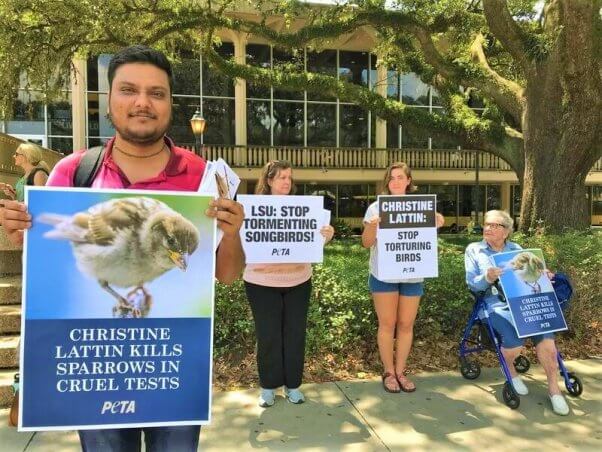
The director of the Washington National Primate Research Center was canned.
Two months after PETA wrote to the University of Washington’s Board of Regents with evidence of failings and called for a dismissal, experimenter Michele Basso was ousted from her position as the director of the Washington National Primate Research Center. As the face of the primate center, Basso embodied the inhumanity, arrogance, and sheer incompetence of the institution. She refused to work cooperatively with staff, botched surgical implants in the skulls of monkeys, and failed to prevent multiple violations of federal animal welfare laws as well as worker injuries.
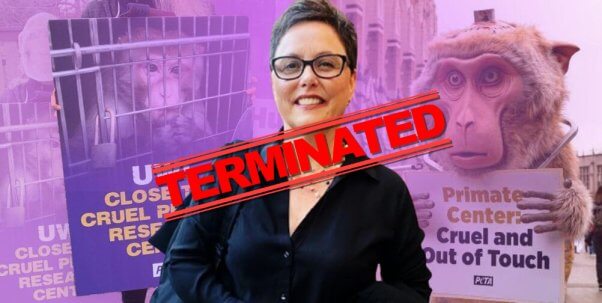
Malaria experimenters exposed in a PETA investigation were ordered to pay up.
Malaria experimenters Sócrates Herrera and Myriam Arévalo—whose seedy monkey laboratory was exposed in an 18-month PETA investigation—were fined more than $281,000 after a Colombian environmental agency found them responsible for lacking the required permits to capture, confine, and experiment on monkeys. The agency’s ruling also established that “animal mistreatment” had been committed and that the monkeys who were rescued from the decrepit facility would not be going back to their abusers. PETA’s investigation had already resulted in the closure of the facility and the rescue of all the animals—who now live in sanctuaries.
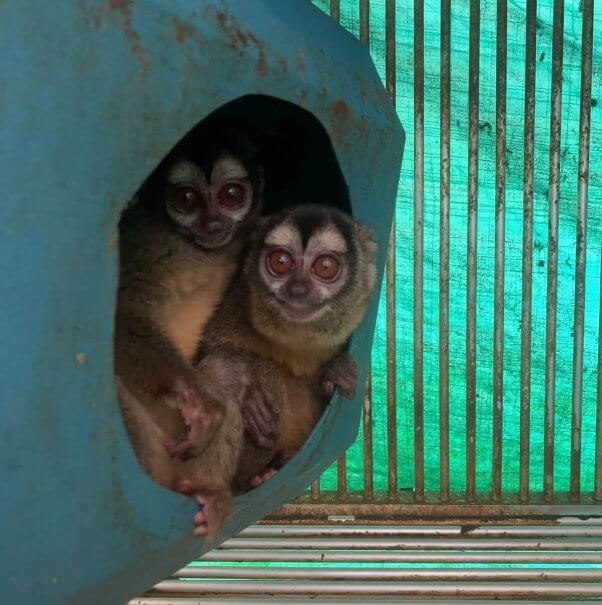
Two more airlines stopped shipping monkeys to deadly laboratories.
PETA caused turbulence for two airlines—Hainan Airlines and AELF FlightService/Maleth Aero—that were shipping monkeys to laboratories to be used and killed in cruel experiments. In April, the U.S. Department of Agriculture fined Hainan Airlines after confirming our previous complaint that the company had flown 720 monkeys more than 8,000 miles from Cambodia to Chicago—without being registered with the agency as required. Hainan Airlines still has no registration and appears now to be out of the dirty monkey-transport industry.
In August, AELF FlightService/Maleth Aero confirmed that it had ended its cruel monkey shipments following a high-pressure campaign by PETA, which included e-mails and phone calls from nearly 115,000 of our supporters around the world, complaints to the U.S. government, and protests at airports across the country.
Major food companies stopped funding animal tests.
Coca-Cola Company, PepsiCo. Inc., Campbell Soup Company, Fresh Innovations, and Sensient Technologies have stopped funding cruel and pointless experiments on animals at the University of Wisconsin–Madison Food Research Institute after hearing from PETA. The institute was force-feeding mice parasite-infested feces and poisoning pregnant monkeys and killing their unborn babies, among other deadly experiments.
The National Mango Board stopped tormenting animals for mango marketing.
The National Mango Board stopped paying experimenters to starve and kill rats and mice and slice them open in pointless tests that were apparently done only to attempt to boost mango sales. The decision followed a PETA campaign that included letters, thousands of e-mails from our supporters, and juicy public advertisements.
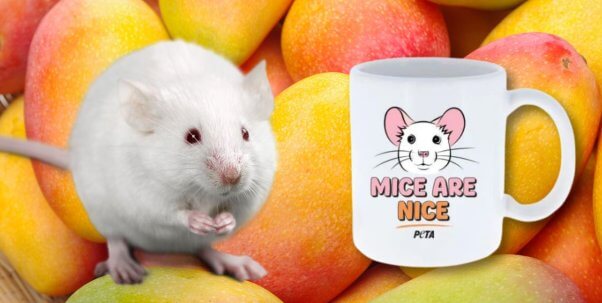
The Taiwan Food and Drug Administration ended iron tests on animals.
Following pressure from PETA and more than 24,000 of our supporters, the Taiwan Food and Drug Administration removed animal testing as an option for companies wanting to make dubious blood-iron health claims to market their food or beverage products in Taiwan. The agency now requires only safe and effective human tests for this purpose, preventing countless animals from suffering in painful, invasive experiments.
Progress in 2024 for Animals Used in Regulatory Testing
Regulatory agencies, such as the U.S. Food and Drug Administration and the U.S. Environmental Protection Agency (EPA), require tests to assess the toxicity of products such as pharmaceutical drugs, pesticides, industrial chemicals, and medical devices before they’re put on the market. PETA Science Consortium International e.V. advances reliable, non-animal toxicity testing methods by publishing research; collaborating on projects with government agencies, industry, and academia; and offering grants for human-relevant research.
A paper coauthored by the Science Consortium offered an approach to cancer tests that would spare countless animals.
The Organisation for Economic Co-operation and Development published a groundbreaking approach coauthored by the Science Consortium that details how to avoid lifetime tests on rats and mice to see whether pesticides cause cancer. PETA regulatory scientists also attended the global agency’s most important meeting of the year, where they played an integral role in reviewing and commenting on non-animal testing approaches that were approved in 2024.
The Science Consortium coauthored a paper that can help spare rabbits from eye-irritation tests.
The paper, coauthored with the EPA and other collaborators, detailed methods that can replace the use of live rabbits to test the effects of chemicals on human eyes. Building on this and other work, the EPA office that regulates industrial chemicals released a document encouraging companies to employ non-animal methods that use human cells instead of rabbits to test these chemicals.
Another Science Consortium paper shows why rats shouldn’t be used in inhalation tests.
This paper coauthored by the Science Consortium demonstrates how differences in the respiratory tracts of humans and rats make tests on rats an unreliable predictor of what happens when humans inhale a substance—and why non-animal tests should be used instead. The paper will be referenced around the world and used in combination with other work from the Science Consortium to help replace the use of rats in inhalation toxicity testing. In inhalation toxicity tests on animals, rats are squeezed into tiny tubes and forced to inhale toxic chemicals. These tests kill an estimated one million animals each year.
The Science Consortium presented at the world’s largest toxicology event.
At the annual Society of Toxicology meeting, the world’s largest toxicology event of the year, PETA regulatory scientists chaired sessions, presented posters, and provided educational courses on non-animal methods for testing chemicals, reaching hundreds of other scientists. They also participated in mentorship events to help early-career researchers advance their careers in non-animal toxicology testing.
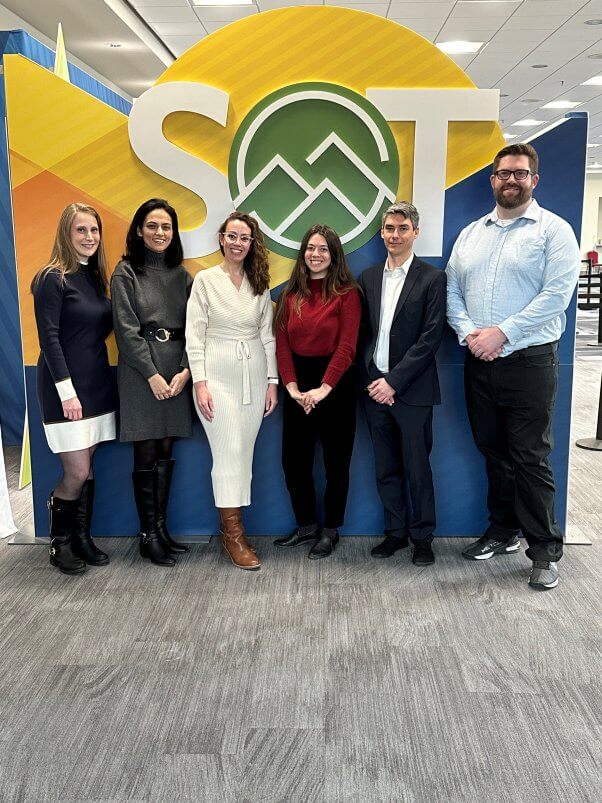
The Science Consortium advanced the use of animal-free antibodies and other animal-free materials used in research.
Antibodies serve as essential research tools, but they’re often derived from animals, rather than produced via modern technology. As experts in the field, the Science Consortium was invited to publish a paper in a scientific journal focused on advancing the use of animal-free antibodies in research. It also awarded a professor with funding to help him create a laboratory that introduces students to the practice of using animal-free antibodies and cells that aren’t reliant on animal-derived supplements for viability and growth. A scientist in Luxembourg also received the Science Consortium’s Early-Career Scientist Award for her work replacing the use of animal-derived ingredients in cell cultures.
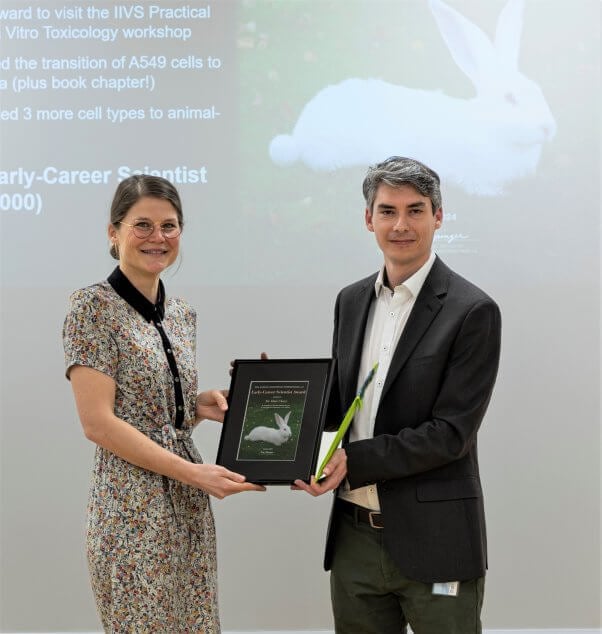
The Science Consortium awarded advanced technology to researchers pursuing non-animal inhalation testing approaches.
Three researchers gave their laboratories an animal-friendly update after winning free equipment from the Science Consortium that can help replace the use of animals in tests that examine what happens when humans inhale a substance.
Another researcher at the Slovak Academy of Sciences received a $15,000 award redeemable for human cell-based models by Epithelix. These human respiratory tissue models, which mimic various regions of the respiratory tract, can be used instead of animals to test the effects of pharmaceuticals, industrial chemicals, pesticides, and household products.
Researchers received hands-on training on animal-free chemical testing methods, thanks to Science Consortium support.
Scientists from all over the world—including researchers from the EPA and the U.S. Department of Defense—attended a four-day training course on in vitro methods in toxicology at a prestigious non-animal testing and training laboratory in Maryland. Designed to help scientists better understand how to conduct and apply the latest animal-free test methods, the Science Consortium–sponsored training included informative lectures by experts and hands-on experience in the laboratory.
The Science Consortium also awarded two early-career scientists with a trip to the European Society of Toxicology In Vitro’s Applied In Vitro Toxicology Training Course. The winners, from ToxHub in Italy and the University of Kaiserslautern–Landau in Germany, gained hands-on experience with non-animal methods.
YOU Can Help PETA Achieve More Victories for Animals Used in Experiments
If you live in the U.S., please send a polite e-mail to your members of Congress urging them to mandate that NIH stop throwing away taxpayer money on experiments on animals and instead focus on modern, human-relevant research methods.
And everyone can urge Ethiopian Airlines to stop shipping monkeys to laboratories for use in cruel and deadly experiments:

